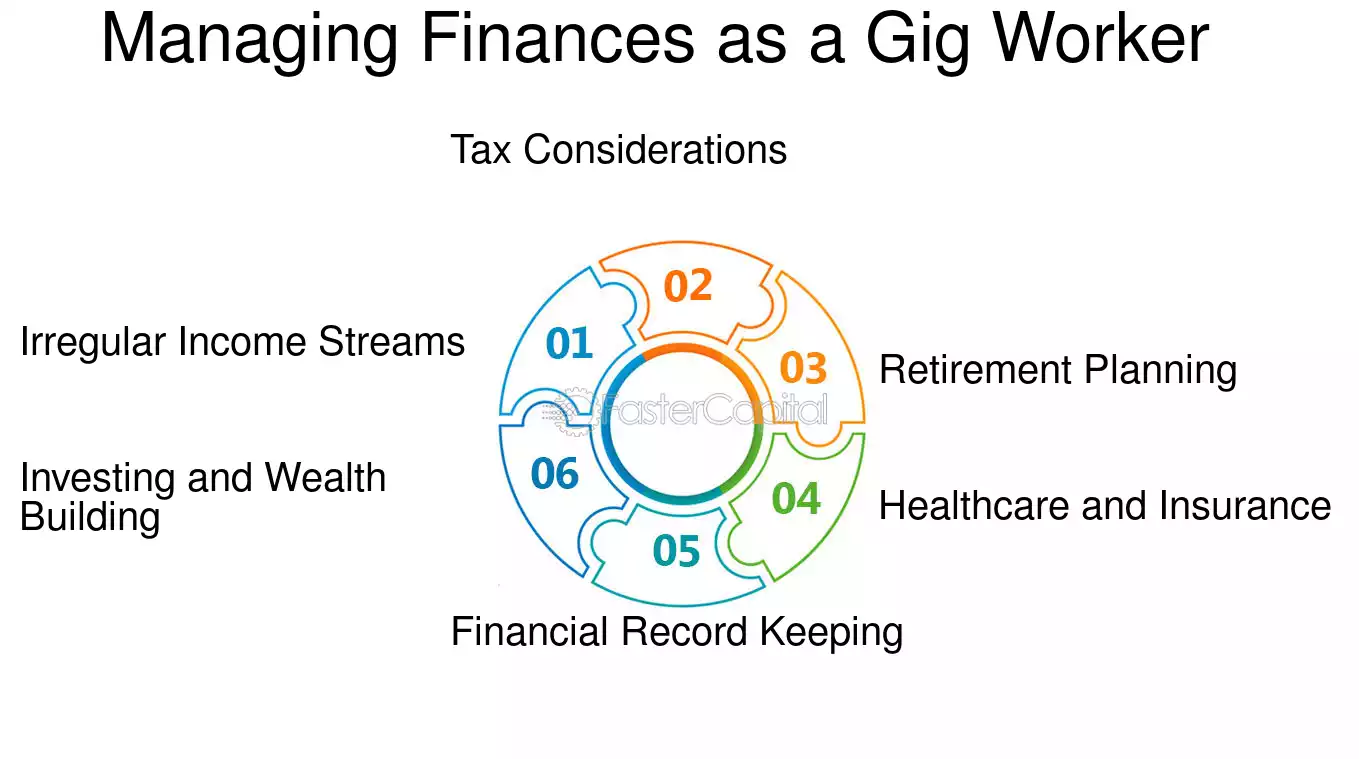Introduction to Gig Workers and Insurance
The gig economy has transformed the way we work. More people are embracing freelancing, driving delivery services, and offering specialized skills on a project basis. While this flexibility is appealing, it also comes with its own set of challenges—especially when it comes to insurance.
Freelancers often juggle multiple roles and responsibilities while navigating an unpredictable income stream. But one critical aspect that shouldn’t be overlooked is protecting your health and financial stability through adequate insurance coverage. Whether you’re designing websites or delivering groceries, understanding how to safeguard yourself against unforeseen risks can make all the difference in your career.
Let’s dive into the essential types of insurance every gig worker should consider to stay healthy and financially secure in this dynamic landscape.
Understanding the Risks of Being a Freelancer

Freelancing offers freedom, but it comes with its own set of challenges. Unlike traditional jobs, gig workers often lack a safety net. This can lead to financial instability if projects dry up or clients delay payments.
Health risks also loom large. Without employer-sponsored health plans, freelancers must navigate the complex world of insurance alone. A sudden illness or accident could quickly drain savings.
Freelancers face liability issues too. Any mistake in your work can result in legal trouble that might not be covered by basic insurance policies.
Additionally, there’s the emotional toll to consider. The pressure to constantly hustle for new gigs can lead to burnout and anxiety.
Awareness of these risks is essential for anyone navigating the freelance landscape. Understanding what you’re up against helps you prepare better and make informed decisions about protecting your well-being and income.
Health Insurance Options for Gig Workers
Navigating health insurance as a gig worker can feel overwhelming. Traditional employer-sponsored plans are often out of reach, leaving freelancers to seek alternatives.
One popular option is the Health Insurance Marketplace. Here, you can compare plans tailored for individuals and families. Depending on your income, subsidies might lower your premiums significantly.
Many states also offer Medicaid expansion programs that provide coverage for low-income earners. Check eligibility criteria; it might surprise you how beneficial this route is.
Another avenue worth exploring is short-term health insurance. While not a long-term solution, it offers temporary coverage during gaps between jobs or projects.
Professional organizations sometimes offer group plans to members. Joining these groups could give you access to better rates and broader options than going solo.
Researching thoroughly will empower you in making informed choices about your well-being.
Disability Insurance for Gig Workers

Disability insurance is a vital safety net for gig workers. Unlike traditional employees, freelancers lack employer-sponsored coverage. This gap can be risky.
If an injury or illness strikes, your income could take a hit. A disability policy ensures you have financial support when you need it most. It provides a portion of your earnings during recovery.
Understanding the types of disability insurance available is key. Short-term policies cover temporary disabilities, while long-term options are crucial for serious situations that last beyond months.
Finding the right plan involves comparing features and costs across various providers. Look for plans tailored to self-employed individuals, as they often understand the unique needs of freelancers better than standard insurers do.
Investing in this type of protection shows commitment to your well-being and peace of mind as you navigate the gig economy’s uncertainties.
Liability Insurance for Gig Workers
Liability insurance is crucial for gig workers. It protects you from claims made by clients or third parties. Imagine a scenario where your work leads to property damage or financial loss for someone else. Without liability coverage, you’re on the hook.
Different gigs come with different risks. A freelance graphic designer might face accusations of copyright infringement, while a rideshare driver could be liable for an accident. Understanding these specific needs helps in choosing the right policy.
Many insurance providers offer tailored options for freelancers. Check if they cover general liability, professional liability, or both.
Don’t overlook this protection as part of your overall risk management strategy. Investing in appropriate liability insurance can provide peace of mind and allow you to focus on growing your business without constant worry about potential legal issues that could arise from everyday operations.
Tips for Finding Affordable Insurance as a Freelancer

Finding affordable insurance as a freelancer can be daunting, but it’s crucial for your financial security. Start by researching multiple providers. Don’t settle on the first quote you receive.
Consider joining freelance associations or groups. Many offer access to group health plans that can significantly reduce costs.
Another option is to explore Health Savings Accounts (HSAs). These accounts allow you to save pre-tax money for medical expenses, making healthcare more manageable.
Review your coverage needs regularly. Adjusting your policy based on changing circumstances can lead to better rates.
Don’t hesitate to negotiate with insurers or ask about discounts. Some companies may offer lower premiums if you bundle policies like auto and home insurance with health coverage.
Look out for seasonal enrollment periods where special deals might be available. Staying informed will help you snag the best options tailored to your lifestyle and budget.
The Importance of Regularly Reviewing and Updating Your Coverage
Regularly reviewing your insurance coverage is crucial for any freelancer. As your career evolves, so do your needs. A project that seemed minor last year might now pose significant risks or liabilities.
Changes in income can also affect the type of coverage you require. If you’ve landed higher-paying gigs, it may be time to reassess and upgrade your policies. On the flip side, a dip in earnings could mean it’s wise to explore more affordable options.
Life events—such as moving, marriage, or having children—can impact what kinds of protection you need too. Each milestone brings new responsibilities and potential exposures.
Set aside time at least once a year to evaluate your plans. This ensures you remain adequately covered without overpaying for unnecessary extras. The freelance landscape shifts rapidly; staying proactive helps safeguard both health and wealth against unexpected challenges.
Conclusion: Prioritizing Your Health and Income as a Gig Worker
As a gig worker, your health and income are intertwined. Without the safety net of traditional employment benefits, it’s crucial to take proactive steps in protecting both. Insurance is not just another bill; it’s an investment in your future.
Navigating through the maze of insurance options can be daunting. However, understanding what you need—be it health coverage, disability protections or liability insurance—can empower you to make informed decisions that align with your lifestyle and work demands.
Regularly reviewing your coverage ensures that you’re adequately protected as circumstances change. Life as a freelancer has its ups and downs; being prepared for unexpected events helps maintain stability in uncertain times.
Prioritizing these aspects will allow you to focus on what truly matters: growing your freelance career while safeguarding your well-being and financial security. Take control today so that tomorrow can be brighter and more secure.
Other Links:
Is Pet Insurance Worth It in 2024? A Comprehensive Guide for Pet Owners
Securing Your Digital Wealth: The Rise of NFT and Cryptocurrency Insurance
Drone Insurance: How to Safeguard Your Investment and Stay Legal
Why Cyber Insurance is a Must-Have in 2024: Protecting Your Business from Data Breaches
